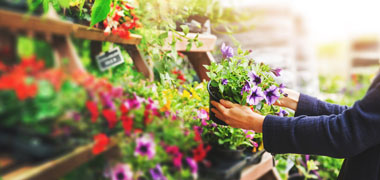
This role has a low level of AI exposure. Core skills such as adaptability, social intelligence, and complex physical tasks remain beyond the capabilities of current AI.
Explore all careersAn Arborist trims and removes tree branches, assesses tree health, and communicates with clients, prioritising safety and teamwork outdoors.
Get qualified to work as an Arborist with a course recognised across Australia. Speak to a training provider to learn more.









In Australia, a full time Arborist generally earns $1,400 per week ($72,800 annual salary) before tax. This is a median figure for full-time employees and should be considered a guide only. As you gain more experience you can expect a potentially higher salary than people who are new to the industry.
 Courses.com.au Team
Courses.com.au Team
The number of people working in this profession has grown strongly in recent years. There are currently 5,600 people employed as an Arborist in Australia compared to 4,300 five years ago. Arborists may find work across all regions of Australia.
Source: Australian Government Labour Market Insights
 Courses.com.au Team
Courses.com.au Team
If a career as an Arborist interests you, consider enrolling in a Certificate III in Arboriculture. This course will give you the skills to identify and assess trees and carry out pruning, cutting and tree felling work. You’ll cover a range of topics including working from a platform, working safely near powerlines and operating chainsaws and pole saws.
 Courses.com.au Team
Courses.com.au Team
Browse occupations related to Arborist



If you're seeking Arborist courses in Wagga Wagga, you're in the right place. Wagga Wagga, located in the Riverina region of New South Wales, offers a variety of training opportunities tailored to aspiring arborists. The courses available in this area provide essential skills and knowledge to thrive in this vital industry. With 7 courses to choose from, including practical training in areas such as tree management and maintenance, you can build a solid foundation for your career as an arborist.
One of the key training providers delivering Arborist courses in Wagga Wagga is Licence Me, which offers a comprehensive course on Use and Maintain Chainsaws. This hands-on training is crucial for those looking to work in arboriculture, where the safe and effective use of chainsaws is a daily requirement. Additionally, studying related fields such as Horticulture and Arboriculture can further enhance your understanding and competencies, making you a well-rounded candidate in the job market.
By enrolling in Arborist courses in Wagga Wagga, not only do you gain local skills, but you also connect with the community and its rich natural environment. Understanding the specific flora of the Wagga Wagga area will provide you with valuable insights into best practices for tree care and management. With training opportunities readily available, embark on your journey towards a fulfilling career in arboriculture and become a vital part of sustaining Australia’s landscapes.